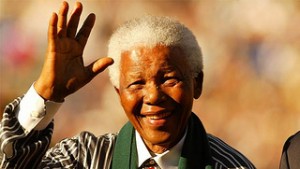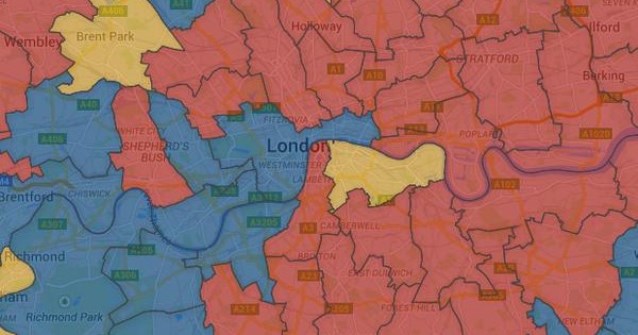Mandela has come to personify the values needed to make a transition from war to peace, but transitions from rule by a privileged minority to a more inclusive democratic system have occurred elsewhere without producing heroic leaders. Bill Kissane compares the South African and Northern Irish transitions and highlights that while Mandela did have the combination of personal, ethical and political qualities to play ‘the great unifier’, he was also operating in a context where it was possible for him to do so.
If Gerry Adams, John Hume, David Trimble, or Ian Paisley were to die tomorrow, their deaths would not occasion the fond recollections, the effusive praise, or the global stamp of approval received by Nelson Mandela last month. More than any other leader, Mandela has come to personify the values needed to make a transition from war to peace. He alone was ‘the great unifier’. These values may be personal (freedom from bitterness), ethical (commitment to reconciliation) or political (success at nation-building). Mandela is identified with all of them. This combination may simply be a function of representation: few can doubt the media’s tendency to offer light entertainment in place of analysis, honing in on one man from a distant country to reassure us that all is for the best, in this the best of all possible worlds. In contrast, Northern Irish politicians have not succeeded in projecting an image of their peace sufficiently attractive for them to be associated with these values. The differences could lie in personalities, two different peace agreements, or the kinds of transition they experienced.

Mandela’s relationship with Britain and its anti-apartheid movement is well-known. His connection with Ireland was no less important. He visited both Britain and Ireland in 1990 and addressed the Irish parliament, Dáil Eireann, in July of that year. His future Minister of Water Affairs and Forestry, Kader Asmal, worked in the law department of Trinity College Dublin in the 1980s, and, like Mandela, supported the Northern Irish peace process. Both believed in the cause of Irish unity. The analogy with the ANC’s struggle was welcomed by Irish republicans, but Mandela’s views on political violence were embarrassing to the Dublin media. A tetchy interview with the journalist Olivia O’Leary for the Irish state broadcaster RTE took place in 1990. Mandela’s view that the IRA should not decommission its weapons in advance of its demands being met, also surprised his friends in Dublin. He met with the leaders of Sinn Fein before he visited Tony Blair. Leaders from the main Northern Irish parties were then invited to South Africa by the ANC in 1997 (reportedly travelling on separate planes at the request of the Unionists). The ANC’s chief negotiator, Cyril Ramaphosa, now deputy President of the ANC, played a major role in the discussions that followed.
Personalities
Can one individual be credited with peace in Northern Ireland? This December John Major was invited to Dublin to commemorate the twentieth anniversary of the Downing Street Declaration. Like his counterpart in Dublin, former Taoiseach (prime Minister) Albert Reynolds, Major broke the mould of traditional British unionism. Yet few consider him a Nelson Mandela. Reynolds could not appear publicly at the commemoration due to advanced Alzheimers. Like nearly all the leaders involved in the Irish peace process, neither have more to give. There are too many leaders for one to be singled out in Ireland, and most have seen their reputation and influence decline since 1998. Tony Blair is an obvious example. The leader of the Ulster Unionist Party David Trimble, was jointly awarded the Noble Peace Prize with John Hume, but was soon stripped of the leadership of his party. Hume, former leader of the SDLP has suffered from serious ill-health for most of the period since 1998 and as a result has now effectively retired. The media is now pursuing Sinn Féin’s Gerry Adams over claims that he ordered the abduction and execution of Catholic mother of ten Jean McConville in Belfast during the early Troubles. Ian Paisley didn’t sign the Belfast Agreement. The Irish government’s chief negotiator, Bertie Ahern, was awarded an Honorary Professorship in conflict mediation for his role. However, over a thousand students petitioned the President of Maynooth University to block the appointment because of Ahern’s role in the financial meltdown of Ireland between 2005 and 2008. In their eyes he was no Nelson Mandela.
The Agreements
In both cases, leaders committed their societies to equality mutual respect and to the principle of non-discrimination. They received majority support in referendums. That their underlying philosophies would be different however was suggested early on by the reaction of the ANC to the work of the political scientist Arend Lijphart who recommended consociational democracy for South Africa. The ANC felt that a power-sharing arrangement would perpetrate racial distinctions and the South African constitution represented a ‘gentleman’s agreement’ where the two sides agreed to move on to other issues after the fundamental roots of the conflict had been resolved. In contrast, the Northern Irish system remains very consociational and a four-party coalition is effectively mandatory under the terms of the Belfast Agreement. The Agreement itself was more of a truce, reflecting the strengths of the two sides in 1998. Mandela never compromised on the majority rule principle and in this he had the backing of 90 per cent of the population. Had he presided over a drawn outcome, like Northern Ireland’s, he would not be Nelson Mandela. Ireland suffered from a ‘double majority problem: Unionists were the de facto majority in Northern Ireland but Nationalists would be the majority if the island was not partitioned. No side won.
The Transitions
Yet both transitions raised the possibility that a relatively privileged minority (White South Africans and Ulster Unionists) would be subject to the rule of a previously oppressed majority. Mandela did not renounce ANC violence as a condition of being released from prison. The National Unity Government with de Klerk was to be temporary and the Nationalists were not given a veto on the new constitution – it was the constitutional court that would judge whether the constitution was in accordance with the principles agreed between the two sides at the beginning of the process. Since then, the ANC has been in power continuously. The Ulster Unionists conceded much less. Indeed Trimble would claim to have won a recognition from all sides that Irish unity required the consent of the majority of the people in Northern Ireland, and persuaded Sinn Féin to sign up to an internal (i.e. partitionist) settlement. Sinn Féin in turn sold the agreement as a transitional settlement (on route to a united Ireland). These readings are mutually exclusive and do not suggest a shared vision of the future. It is hard to be poetic about half-way houses. And it is precisely the sense of reconciliation that makes Mandela universally popular. The constitution redefined South Africa as a non-racial state, consistent with the idea of a rainbow nation. In contrast, the Belfast Agreement recognised British and Irish (but not Northern Irish) identity. One was a nation-building instrument; the other assumed a divided people for the foreseeable future.
Ultimately, the reason that there is no Nelson Mandela in Northern Ireland is that its divisions do not provide much of an opportunity for nation-building and hence for ‘a great unifier’ to play this role. In the absence of a resolution to the conflict (which would have required Unionists to accept a United Ireland, or nationalist to become British) there is less scope for reconciliation. The South Africans now have the patent on this idea. Mandela did have the combination of personal ethical and political qualities to make this so, but he was operating in a context with such possibilities. Perhaps it was in deference to the difference that when Kader Asmal was recently asked in Dublin whether South Africa’s Truth and Reconciliation process should be introduced to Northern Ireland his answer was no.
Nelson Mandela has become his admirers. The former Irish President Mary Robinson remarked that ‘we are bereft because he was the best of us. ‘Us’ here means the whole of humanity, right as well as left. Robinson is a member of The Elders, a group of statesmen and women founded by Mandela to promote justice and equality. On the global stage he is identified with inclusivity, peace, and reconciliation. If he had pushed harder to end the economic disparities between Whites and non-Whites, this might not be so. His role reflects the orthodox view that democratic transitions should put political accommodation before social transformation. Yet transitions may be no guide to outcomes. The existence of corruption, one-party rule and persistent inequality in South Africa are undeniable. Will Mandela’s legacy last? An analogy could be made with the Yugoslav leader Marshal Tito. Tito was also the architect of co-existence in a divided country who had spent years in prison and showed a remarkable capacity to think for himself under Soviet pressure. Since he was a communist, not a democrat, his appeal is not universal, but his achievements are commensurable. When he died in 1980 there were also questions about his succession. The comparison need not suggest that South Africa will eventually implode, only that the ambitions of even the greatest of leaders remain half-fulfilled.
Note: This article gives the views of the author, and not the position of the British Politics and Policy blog, nor of the London School of Economics. Please read our comments policy before posting.
About the Author
 Bill Kissane is a Senior Lecturer in Political Science at the Government Department of the London School of Economics. His research interests lie broadly within the areas of comparative and Irish politics. He is currently working on two books on civil wars and their aftermaths.
Bill Kissane is a Senior Lecturer in Political Science at the Government Department of the London School of Economics. His research interests lie broadly within the areas of comparative and Irish politics. He is currently working on two books on civil wars and their aftermaths.






